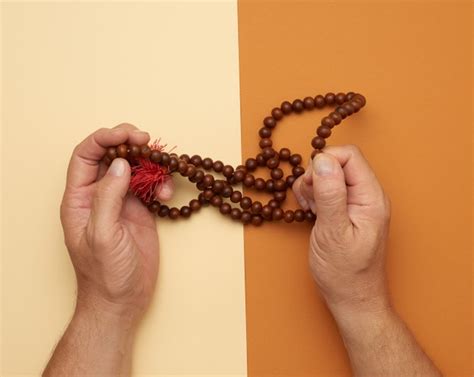The Power of Dhikr: Your Guide to Using Prayer Beads
Dhikr, the remembrance of God, is a cornerstone of Islamic practice, offering a path to spiritual growth, inner peace, and a deeper connection with the divine. Often accompanied by the use of prayer beads (also known as tasbih), dhikr becomes a powerful meditative practice accessible to all. This guide explores the significance of dhikr, the use of prayer beads, and how to incorporate this enriching practice into your daily life.
What is Dhikr?
Dhikr (ذكر) is the Arabic word for "remembrance" or "mentioning." In Islam, it refers to the conscious and repetitive invocation of God's names, attributes, or verses from the Quran. This isn't merely rote repetition; it's a profound spiritual exercise aimed at purifying the heart, strengthening faith, and cultivating a constant awareness of God's presence. The act of dhikr cleanses the soul from negative thoughts and emotions, fostering tranquility and inner peace. It's a form of worship that can be performed at any time, anywhere.
The Role of Prayer Beads (Tasbih) in Dhikr
Prayer beads, traditionally made of 99 beads (representing the 99 names of Allah), serve as a practical tool for keeping track of repetitions during dhikr. Each bead represents a single invocation, helping maintain focus and preventing distraction. While the number 99 is common, beads can also contain 33, 100, or other numbers of beads, depending on personal preference and the specific dhikr being performed. The use of prayer beads isn't mandatory for dhikr, but many find them helpful in maintaining concentration and creating a more mindful experience.
How to Use Prayer Beads for Dhikr
Using prayer beads for dhikr is straightforward:
- Choose your Dhikr: Select a specific invocation or phrase (e.g., "SubhanAllah" (Glory be to God), "Alhamdulillah" (Praise be to God), "Allahu Akbar" (God is greatest)). You can choose a single phrase or a combination.
- Hold the Beads: Begin with the bead furthest from the tassel or separator.
- Recite your Dhikr: As you recite your chosen phrase, move one bead through your fingers.
- Continue the Cycle: Continue reciting and moving beads until you've completed one cycle. You can then repeat the process.
Important Note: The focus should be on the sincerity and quality of your recitation rather than simply completing a certain number of repetitions.
Different Types of Dhikr and Their Benefits
Various types of dhikr exist, each offering unique spiritual benefits:
- Remembering Allah's Names (Asma ul Husna): Reciting Allah's 99 beautiful names is believed to strengthen one's faith and connection with the divine.
- Reciting specific Ayat (verses) from the Quran: Repeating verses known for their spiritual significance can evoke profound feelings of peace and tranquility.
- Mentioning Allah's Attributes: Focusing on God's attributes (e.g., mercy, compassion, justice) can cultivate inner strength and compassion.
What are the Benefits of Dhikr?
The practice of dhikr offers numerous spiritual and psychological benefits, including:
- Increased spiritual awareness: Regular dhikr cultivates a heightened sense of God's presence in daily life.
- Stress reduction: The meditative nature of dhikr helps calm the mind and reduce stress levels.
- Improved mental clarity: Dhikr can enhance focus and concentration.
- Enhanced emotional regulation: By focusing on positive thoughts and feelings, dhikr helps manage negative emotions.
- Strengthened faith: Consistent remembrance of God deepens one's faith and devotion.
How Often Should I Practice Dhikr?
There's no prescribed frequency for dhikr. The key is consistency and sincerity. Even a few minutes of mindful dhikr each day can be incredibly beneficial. Many Muslims incorporate dhikr into their daily routines, such as before and after prayers, during commutes, or before sleep.
What are some common misconceptions about Dhikr?
Misconception 1: Dhikr is just mechanical repetition. While repetition is involved, the focus should be on mindful remembrance, not just the act of repeating words. The intention and sincerity behind the act are crucial.
Misconception 2: Dhikr replaces other forms of worship. Dhikr is a supplemental form of worship; it complements, but does not replace, other essential practices like prayer (Salat), fasting (Sawm), charity (Zakat), and pilgrimage (Hajj).
Misconception 3: Only certain people can perform Dhikr. Dhikr is accessible to all Muslims, regardless of their level of religious knowledge or experience.
Conclusion: Embracing the Power of Dhikr
Dhikr, with the aid of prayer beads, offers a powerful path to spiritual growth and inner peace. By incorporating this practice into your daily life, you can cultivate a deeper connection with the divine, enhance your mental well-being, and experience the transformative power of remembering God. Remember, the sincerity of your intention and the focus on connecting with the divine are paramount.

